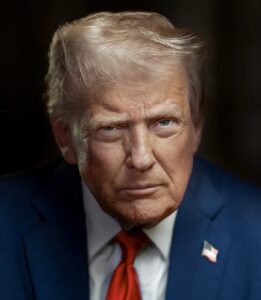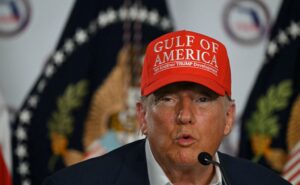Paramount Reaches $16 Million Settlement with Donald Trump Over Controversial 60 Minutes Interview

In a major legal development involving politics and the media, former President Donald Trump has secured a $16 million settlement from Paramount Global following a lawsuit centered on the editing of a televised interview with then-Vice President Kamala Harris. The dispute drew national attention for its implications on media fairness, campaign influence, and journalistic transparency.
The Case at the Center of the Storm
The controversy began with Trump’s lawsuit against CBS — a Paramount Global subsidiary — over its editing choices in a 60 Minutes interview with Harris. Trump alleged that the interview was altered to portray Harris more favorably during a crucial period in the presidential campaign.
At the heart of the lawsuit was the claim that CBS edited Harris’s response to a sensitive question about the Biden administration’s stance on the Israel-Gaza conflict. Trump’s legal team argued that this altered version concealed what they described as a “confusing and disorganized” answer, thereby giving Harris an unfair image boost.

Though CBS denied any wrongdoing and maintained the edits were routine and made for time constraints, Trump asserted the changes caused him “mental anguish” and significantly impacted his public image during the race.
A Settlement Without Admission
While CBS and its parent company Paramount Global have not admitted to any fault, they agreed to settle the lawsuit for $16 million. According to sources familiar with the deal, the settlement covers Trump’s legal expenses and reportedly contributes to his plans for a future presidential library.
“This is a significant win,” a Trump spokesperson said. “The media must be held accountable when it fails to present information fairly to the American people.”

The settlement does not include a formal apology from CBS or Paramount. However, the agreement reportedly includes a provision requiring 60 Minutes to release full transcripts of future interviews with presidential candidates — a move hailed by Trump’s team as a step toward greater transparency in political journalism.
Political Context and Media Tensions
The legal clash began in October of last year, during a particularly heated phase of the presidential campaign. Trump initially filed the lawsuit demanding $10 billion in damages, later increasing the demand to $20 billion. The suit accused the network of attempting to manipulate public opinion and “tip the scales” in favor of the Democratic Party.
Though critics dismissed the claim as political posturing, the case gained traction and public interest, especially among Trump supporters who have long echoed his sentiments about so-called “media bias.”

A CBS representative defended the network’s practices, stating, “Our editorial standards remain consistent and fair. This particular edit was made in accordance with industry norms. There was no attempt to mislead viewers.”
Corporate Pressures Behind the Scenes?
Some industry observers have speculated that Paramount’s decision to settle may have been influenced by its ongoing merger talks with Skydance Media. With the deal under review by the Federal Communications Commission (FCC) — and Trump still wielding political influence — insiders suggested Paramount may have sought a fast resolution to avoid jeopardizing the merger’s progress.
However, Paramount pushed back on this narrative.

“This lawsuit and the Skydance transaction are entirely unrelated,” the company said in a statement. “We are following the legal process, and the decision to settle was based solely on the unique circumstances of this case.”
Fallout at CBS
The settlement has had ripple effects within CBS itself. Several top executives, including CBS News President Wendy McMahon, have stepped down in recent weeks. Though CBS has not confirmed direct links between the resignations and the Trump lawsuit, insiders have cited mounting tensions over how the network handled the dispute.
McMahon’s resignation in May followed the earlier departure of 60 Minutes executive producer Bill Owens, who had cited internal disagreements over editorial independence.
In light of recent developments, some employees have expressed concern about the precedent this settlement might set — particularly in terms of potential political influence over journalistic decisions.
A Broader Pattern?
This is not the first media settlement involving Trump. Earlier this year, ABC News also resolved a defamation case filed by the former president, adding to a growing list of disputes between Trump and major news outlets.
While critics argue that these lawsuits are part of a broader campaign to intimidate the press, Trump and his allies say they are fighting for fairness in reporting.

Whether viewed as a media reckoning or a calculated legal maneuver, the $16 million settlement marks another significant moment in Trump’s long-standing battle with what he frequently labels the “Fake News media.”
And as the 2024 campaign season heats up, it’s likely the tension between press freedom and political pressure will only continue to grow.